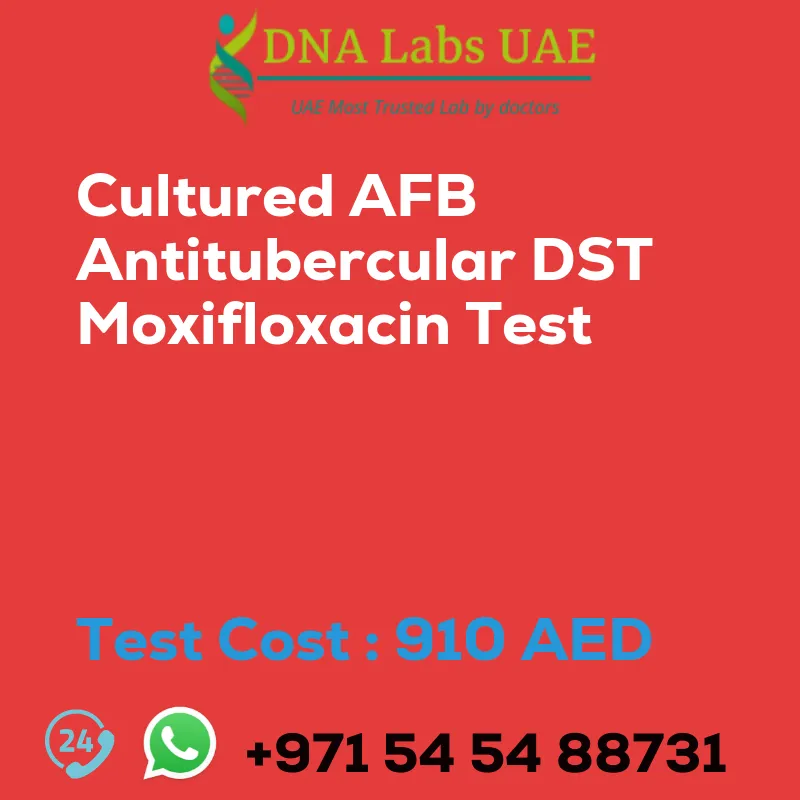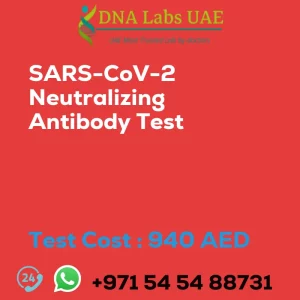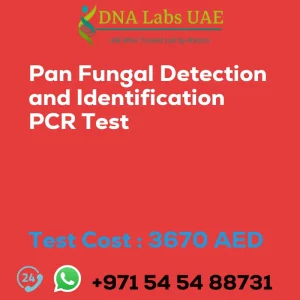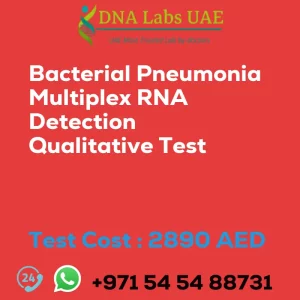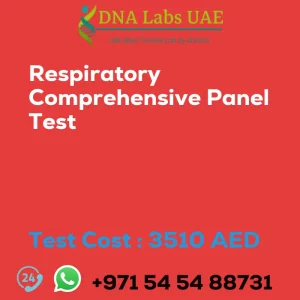CULTURED AFB ANTITUBERCULAR DST MOXIFLOXACIN Test
Test Cost: AED 910.0
Symptoms, Diagnosis, and Test Details
The Cultured AFB Antitubercular DST Moxifloxacin test is a laboratory test used to determine the susceptibility of Mycobacterium tuberculosis (the bacteria that causes tuberculosis) to the antibiotic moxifloxacin. This test is part of the drug susceptibility testing (DST) process, which helps guide the selection of appropriate antibiotics for the treatment of tuberculosis.
During the test, a sample of the patient’s sputum or other body fluid is collected and cultured to isolate the tuberculosis bacteria. The isolated bacteria are then exposed to various concentrations of moxifloxacin in the laboratory. The growth of the bacteria is observed over a specific period of time to determine the minimum inhibitory concentration (MIC) of moxifloxacin that prevents bacterial growth.
The MIC value obtained from the test helps classify the tuberculosis bacteria as either susceptible, intermediate, or resistant to moxifloxacin. This information is crucial for healthcare providers to select the most effective antibiotics for the treatment of tuberculosis and prevent the development of drug resistance.
It is important to note that the Cultured AFB Antitubercular DST Moxifloxacin test is just one of the many tests performed as part of the overall DST process. Other antibiotics, such as isoniazid and rifampin, are also tested to determine their effectiveness against the tuberculosis bacteria. The results of these tests help guide the selection of a combination of antibiotics for the treatment of tuberculosis.
Test Components and Price
Components: Cultured AFB Antitubercular DST Moxifloxacin
Price: 910.0 AED
Sample Condition and Report Delivery
Sample Condition: Submit pure growth of Mycobacterium tuberculosis complex on appropriate media in sterile screw capped container in a sealed plastic bag. Ship refrigerated OR when used with other AFB culture or Mycobacteria identification tests, the pure growth obtained in the Laboratory from specimens already submitted will be processed for Antitubercular Sensitivity.
Report Delivery: Sample daily by 3.30 pm; Report 21 days
Method and Test Type
Method: Automated Fluorescent
Test Type: Tuberculosis
Doctor and Test Department
Doctor: Physician
Test Department: DNA Labs UAE
Pre Test Information
No special preparation required
| Test Name | CULTURED AFB ANTITUBERCULAR DST MOXIFLOXACIN Test |
|---|---|
| Components | |
| Price | 910.0 AED |
| Sample Condition | Submit pure growth ofMycobacterium tuberculosis complexon appropriate media in sterile screw capped container in a sealed plastic bag. Ship refrigerated ORwhen used with other AFB culture or Mycobacteria identification tests, the pure growth obtained in the Laboratory from specimens already submittedwill be processed for Antitubercular Sensitivity. |
| Report Delivery | Sample Daily by 3.30 pm; Report 21 days |
| Method | Automated Fluorescent |
| Test type | Tuberculosis |
| Doctor | Physician |
| Test Department: | |
| Pre Test Information | No special preparation required |
| Test Details |
The Cultured AFB Antitubercular DST Moxifloxacin test is a laboratory test used to determine the susceptibility of Mycobacterium tuberculosis (the bacteria that causes tuberculosis) to the antibiotic moxifloxacin. This test is part of the drug susceptibility testing (DST) process, which helps guide the selection of appropriate antibiotics for the treatment of tuberculosis. During the test, a sample of the patient’s sputum or other body fluid is collected and cultured to isolate the tuberculosis bacteria. The isolated bacteria are then exposed to various concentrations of moxifloxacin in the laboratory. The growth of the bacteria is observed over a specific period of time to determine the minimum inhibitory concentration (MIC) of moxifloxacin that prevents bacterial growth. The MIC value obtained from the test helps classify the tuberculosis bacteria as either susceptible, intermediate, or resistant to moxifloxacin. This information is crucial for healthcare providers to select the most effective antibiotics for the treatment of tuberculosis and prevent the development of drug resistance. It is important to note that the Cultured AFB Antitubercular DST Moxifloxacin test is just one of the many tests performed as part of the overall DST process. Other antibiotics, such as isoniazid and rifampin, are also tested to determine their effectiveness against the tuberculosis bacteria. The results of these tests help guide the selection of a combination of antibiotics for the treatment of tuberculosis. |

